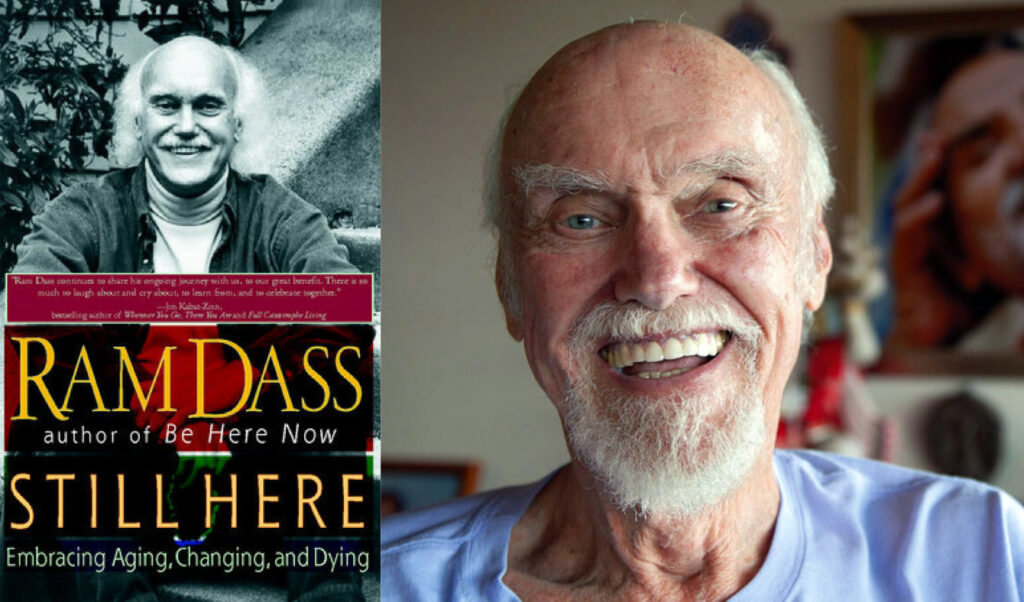A heart and soul view on conscious ageing
In the 1970s and 80s, Ram Dass was a leading international spiritual teacher: a classic fusion of California and India, where he had met his guru. His books (such as Be Here Now), talks and workshops were inspiring, and his zest and charisma carried you along.
Suddenly, in 1997 at the age of 65, he had a stroke which left him paralysed, with impaired speech and memory loss, and needing care 24/7. The power of this book is how honestly he shares his journey from loss and anger to composure and self-acceptance as a spiritual elder.
Probably most of us will have health crises as we age, and the extreme nature of his crisis means he can help the rest of us authoritatively. He draws a useful distinction between curing and healing: a cure would mean restoring the way you were, whereas “healing means allowing what is now to move us closer to God”. Perhaps the central message of the book is to have faith that whatever comes to you is grace from God.
Ram Dass is eloquent about the ways the ego tries to run us, with its self-centred focus on material needs and emotional comfort. He explains that “the stroke cleared away ego distractions and brought me back to soul purpose”. His book offers ways for us to do this without a major health crisis, although his comment that “suffering raises consciousness” is challenging.

Still Here is a compassionate, perceptive guide to the many issues of ageing. One is doubt about the meaning and purpose of later life. He comments that wisdom can keep growing as we age, and whilst society may undervalue it, wisdom is a vital quality in these crazy times. He beautifully defines it as “the emptying and quieting of the mind, the application of the heart, and the alchemy of reason and feeling”. The benefits include seeing the whole picture, discerning what really matters, and using our limitations.
Ageing can bring up many fears. He quotes Gandhi: “Before you can get to God, you have to face your fears.” Ram Dass urges us to talk with our fears, befriend them. And he links this to our sense of time. He values Buddhist teachings on impermanence, and uses them to limit fears of the future by focus on the present moment to “awaken ourselves to who we are now”. He also urges us to learn how to grieve, so that we can release the past.
He also offers some wisdom about dying and beyond. The doctors and even family around us may be preoccupied with physical illness and treatment: we need to stay focussed on the soul, and find support for this. He is sure that physical death is just a transition for the soul, and points out that people who have had near-death experiences report them as joyful, moving towards the light.
Amazingly, I once had breakfast with Ram Dass. We were at a conference in Switzerland, around 1983. We had a brief, friendly chat, and he suggested breakfast together. I don’t recall what he said, but I do still feel his presence: his vitality, and the depth of perception in his eyes. So I can really imagine how shattering the stroke was, and his account of the faith and the soul focus which helped him reinvent himself as an elder is truly inspiring.
